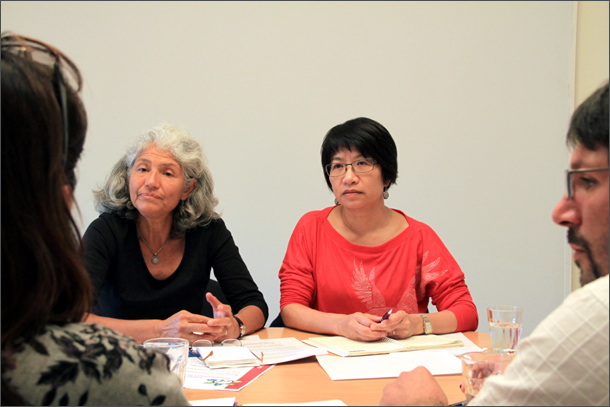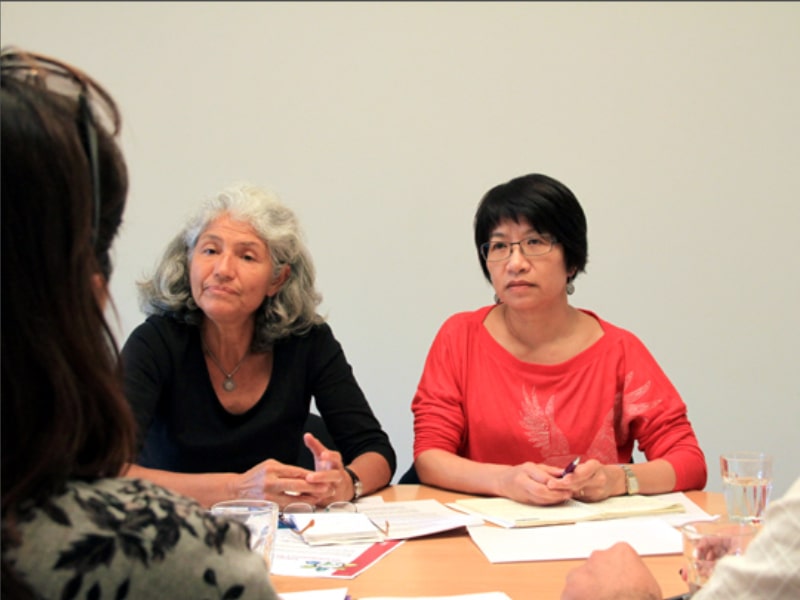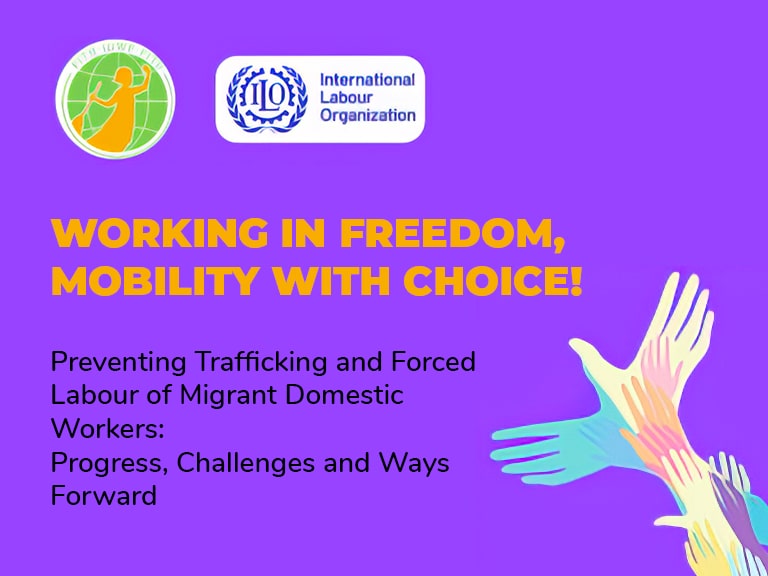- This event has passed.
Step by step towards the first congress of the IDWN
The IUF Regional Secretariat for Latin America, or the UITA, based in Montevideo will be the organizer of the IDWN Founding Congress in October. In May, it interviewed Elizabeth Tang as she visited the country to prepare the Congress.
Details
Read the original article in Spanish: Con Elizabeth Tang Paso a Paso Hacia el Primer Congreso de la Red Internacional de Trabajadoras Domésticas | Rel-UITA
Next October 26th through the 28th, Montevideo will host the Founding Congress of the International Domestic Workers’ Network (IDWN). IDWN International Coordinator Elizabeth Tang visited Montevideo to prepare the event together with the IUF Regional Office, and spoke with La Rel about the important and difficult task of organizing the sector’s workers.

Photo: Rel-UITA
Why choose Uruguay as the venue for the founding congress?
Because Uruguay was the first country in the world to ratify ILO Convention 189 concerning decent work for domestic workers, and because the IUF – which was involved from the start in this Convention’s drafting efforts – has its regional office here in Montevideo.
These are two powerful reasons to hold the Founding Congress of the International Domestic Workers’ Network in this country.
What is the significance of this event in the context of the Network’s activities?
It means going one step further, after years of working in a campaign to get the ILO to draft Convention 189 and then to have it ratified.
It took four years from the start of the campaign to the adoption of the Convention, so this Congress will mark the beginning of a second stage in our work, which will be focused on trying to get Convention 189 ratified by more and more countries around the world.
In addition to the ratification of the Convention, what other goals does the Congress have?
One of the main objectives is to adopt the bylaws of the International Domestic Workers’ Network, towards becoming a federation that will bring workers together at an international level and that will strengthen and give visibility to the work done by domestic workers.
With bylaws we will be able to elect a steering committee and that will undoubtedly represent greater support and strength for domestic workers’ unions throughout the globe.
What are the leading common difficulties faced by domestic workers?
It depends a lot on the region they are in. In some countries of Asia and Africa they have absolutely no rights; many work under slave-like conditions, in exchange for a place to live and a meal. Their working conditions are very much below what we can call decent work.
The situation is often worse because it involves young boys and girls, who begin working in households at the age of eight or nine. In Asia, for example, many countries lack any legislation to protect these workers. Domestic work is, in fact, not considered work; therefore there are no laws to regulate this activity.
In Latin America, in contrast, a lot of progress has been made both in labor legislation and in the organization of the sector’s workers.
Mexico has the oldest domestic workers’ union in the world; there are also domestic workers’ organizations in Brazil, Argentina, Peru, Colombia, and Uruguay, with Uruguay having the most advanced legislation in terms of rights and decent work.
But without a doubt the greatest problem faced by this sector is that workers are isolated, which is why it is necessary to form an international network to be able to coordinate joint actions and begin pressuring governments to legislate, or, at the very least, ratify Convention 189, and, above all, put the issue of these long-neglected workers on the political agenda.
What are your expectations for this first congress?
I have the highest expectations. I hope it will kick off a joint effort to improve the working conditions of domestic workers everywhere.
I also expect it to be a network of solidarity gathering people from different countries, with different realities but with a common cause: improving the future working conditions of domestic workers.








